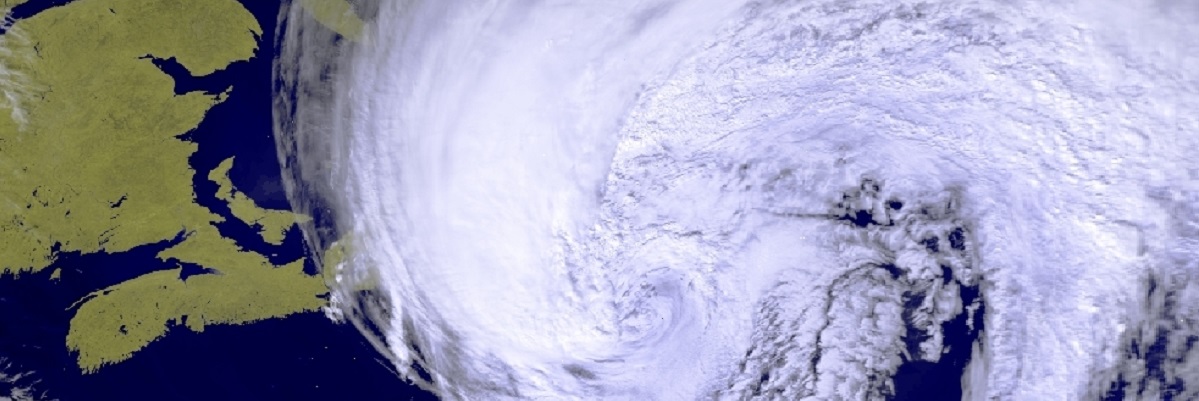Hurricanes: Information & Facts

Hurricanes develop out of tropical storms, and can cause tremendous damage to property and infrastructure, uprooting communities and leading to many fatalities.
Know the difference between a hurricane warning and a hurricane watch:
- A Hurricane Warning means a hurricane is already occurring or will occur soon in your area. Evacuate if advised to do so.
- A Hurricane Watch means a hurricane is possible in your area. Stay alert for more information.
Hurricane Basics
Hurricanes occur during the summer and early fall when the Atlantic waters are warm enough to cause a tropical cyclone, which then develops into a hurricane. Hurricanes can be as large as 1,000 kilometres across. The most damage is caused during a storm surge, when water from the ocean is lifted into the swirling winds and pushed towards shore, causing severe flooding.In Canada, tropical cyclones have claimed more than 600 lives since 1900.
A storm is classified as a hurricane if its wind speed is at least 117 kilometres per hour, while a tropical storm is one classification below a hurricane, with winds between 62 and 117 km/h. However a tropical storm can still cause significant devastation.
Communities nearest to the Atlantic are at the highest risk of hurricanes. Hurricane season in Eastern Canada runs from June to November.
Local governments play a big role in protecting communities during large storms and hurricanes, but there are many ways individuals and families can prepare for hurricanes and potential evacuations. Learn more about how to keep yourself and your family safe.
Stay up to date on storm warnings and risks of hurricanes through Environment Canada.
For up to date information on hurricane conditions, storm maps, and weather warnings, visit the Canadian Hurricane Centre to identify risks across the country.
The provincial governments of Eastern Canada provide information on local hurricane risks.
After a Disaster
Recovering after a disaster can be overwhelming. Check out what resources the Red Cross has to offer.
Get an Emergency Kit
Getting or making a kit is the final step in being ready for any emergency. Find out what you need to put in it.
